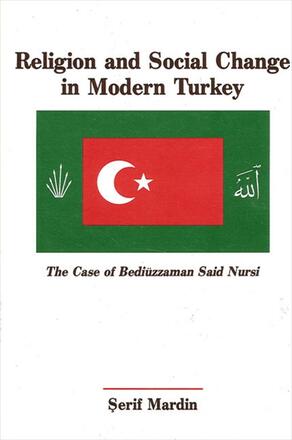
Religion and Social Change in Modern Turkey
The Case of Bediüzzaman Said Nursi
Alternative formats available from:
Şerif Mardin is a professor in the Department of Public Administration at Bogazigi University, Istanbul.
Reviews
"In terms of both content and treatment, Mardin's book ranks very high among the few serious books devoted to Islam in modern Turkey. It is a definite step forward in the understanding of a subject hitherto clouded in propagandistic generalities. Bediüzzaman was the most significant Muslim thinker in twentieth-century Turkey, and the account of his case provided by Mardin is an important contribution of unusual value and sophistication to the current evaluation of religious movements in the modern Islamic world. " — Hamid Algar
"This is the best work I have seen on Islam and social change in a decade. " — Said Amir Arjomand
"The book offers a sympathetic account of a phenomenon of extreme importance for gaining an insight into modern Islamic movements, not only in Turkey, but also in much of the rest of the Islamic world. It is one of the few serious studies of contemporary Islamic movements. " — William C. Chittick
"As the question of religious fundamentalism in Turkey has long been tabu, the author's detailed treatment of its content and context is a real contribution. By carefully placing Said Nursi and his movement in the context of the late Ottoman Empire, the author has widened our understanding of late Ottoman popular culture and intellectual history. Furthermore as his approach is firmly rooted in the sociology of religion his conclusions about a particular Turkish case has applicability to the whole range of fundamentalist movements in the twentieth-century Muslim world. " — Bruce Masters